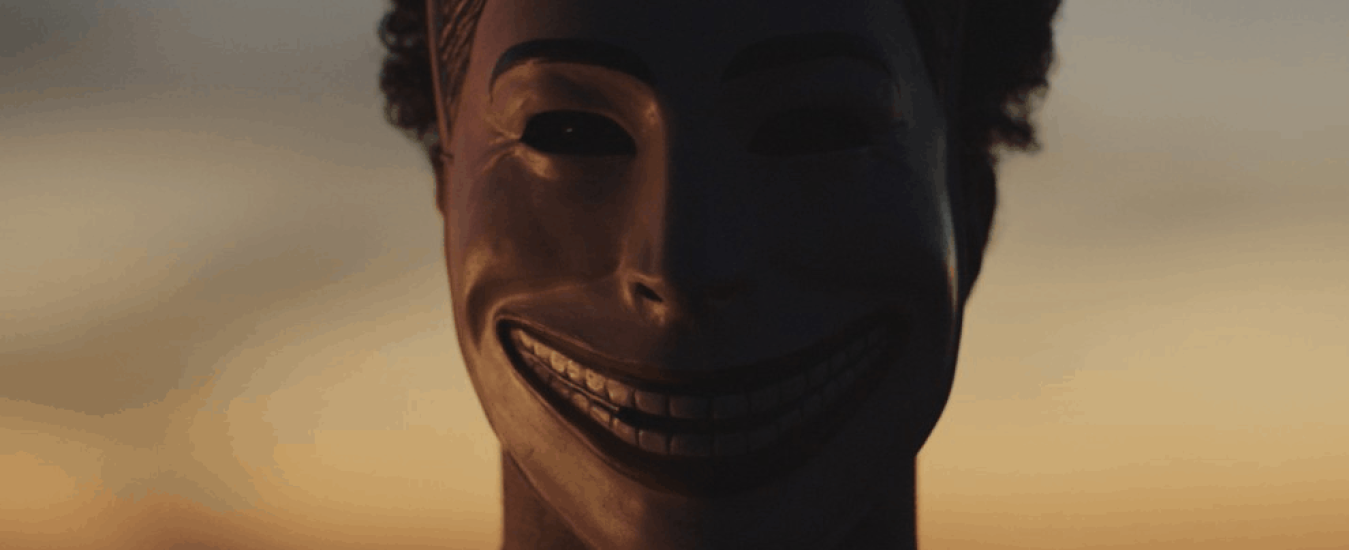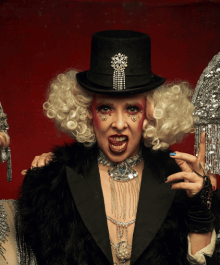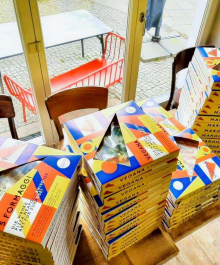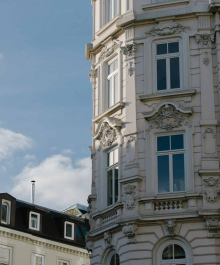

Is Tim Sutton lightening up?
The American writer-director’s recent films have marked him as a chronicler of his country’s slow-motion collapse, and the weird, psychotic, intensely masculine fraying that comes with it.
2018’s Donnybrock was a road trip through the Darwinian badlands of opioid countryside, in which a bare-knuckle prize fight offers Jamie Bell and Frank Grillo’s lower-class men the only escape from desperate lives. Dark Night (2017) was more consciously plugged into our contemporary nightmare, a wandering, art-house teaser for a cineplex mass shooting, invoking Gus van Sant and the gurning spectre of James Holmes. In 2012, the dyed-red Holmes killed twelve people at a screening of The Dark Knight Rises in Aurora, Colorado, and later pleaded insanity in court. A gun club owner who received a strange voicemail from Holmes told the press he sounded like “the Joker”.
When Funny Face gets released, everyone is going to call it the “arthouse Joker”.
Makes sense: it’s also about a loser who hates the rich and finds liberation through a mask. But the film offers more texture and emotional variety than Todd Phillip’s laboriously monotone take on DC Comics’ clown prince, its vision of late capitalist alienation rendered through the elegiac, observational beauty so central to Sutton’s style. We’re not at the big top.
The three main characters are united by loneliness and parental distance. Saul (Cosmo Jarvis) is sort of an under-achieving Peter Parker: he’s in his late twenties or early thirties, doesn’t do much, and lives in Brooklyn with his aunt and uncle, who fret over the dangling blade of eviction. He’s quiet and avoidant, and finds rare connection when he meets Zama (Dela Meskienyar), a Muslim who chafes against restrictions at home. Circling the anxious residency is Jonny Lee Miller as The Developer, a real estate predator eager to raize the neighbourhood and erect high-yield luxury apartments in its place. His father (Victor Garber), an old-school capitalist who proudly helped build the borough’s everyday mortar, regards him as an amoral parasite, selling empty rooms to faceless foreign investors.
All three wear masks.
Zama suits up with her burqa on the walk home from the club. The Developer is introduced via a slow-zoom investor pitch, the frame humming with the red of devils and their pacts, a careful performance that hides over-leveraged financial realities. Saul’s mask is the most literal, the grinning, vaguely harlequin face from the film’s poster; one that lets him talk freely to Zama, in halting hanging-out conversations. The slow-burn of their growing intimacy is endearing, and rooted in a stylishly realistic sense of place. They grab slices and try on kicks in the storefronts, cafes and corner shops not yet scorched clean by gentrification. In the background, the whirring loops of a Coney Island dipper.
Phil Mossman’s score churns with unresolved thriller anxiety, and helps establish tonal distinction with Phillips’ film. While Joker offered a power fantasy of the unloved getting their own back at the elite, Funny Face has none of that triumph. How can you win when the enemy is capital itself?
The mask permits Saul some small class violence, but even he seems embarrassed by the petty, if righteous, rage. Jacobin hysterics can’t solve the central malaise. The two men aren’t conjoined like heroes and arch-villains, but they have a common victimhood nonetheless. Both feel powerless against abstract spreadsheet directives, and both lose it in the privacy of their cars, Miller screaming ‘MONNNEEEY’ providing an outburst of terrific, memeable absurdity. Saul batters his dashboard because he loves the losers at the New York Knicks like he does. But there’s no catharsis, only, maybe, the temporary relief of discovering a fellow outsider. In late capitalism, the joke’s on us.






